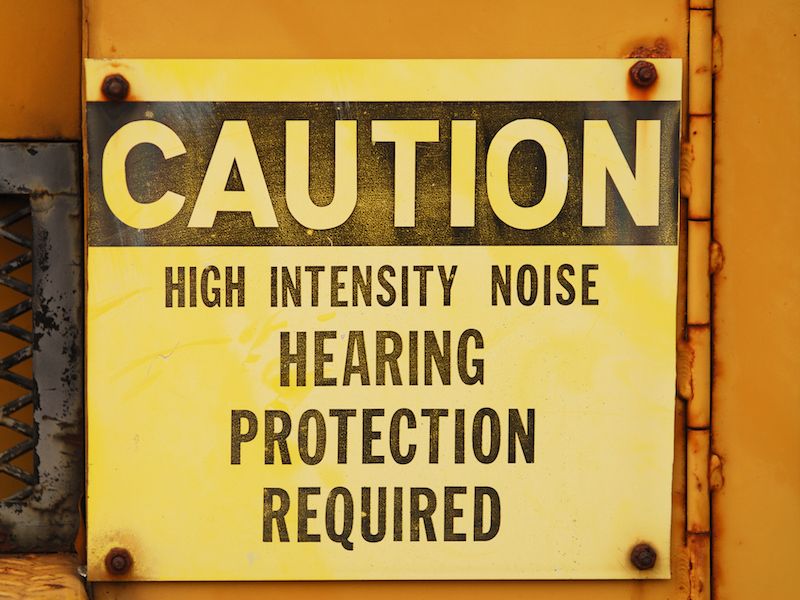
It’s one thing to recognize that you need to safeguard your hearing. It’s a different story to know when to protect your hearing. It’s more challenging than, let’s say, knowing when you need sunscreen. (Is the sun out and are you going to be outdoors? Then you need sunscreen.) Even knowing when you need eye protection is simpler (Working with hazardous chemicals? Doing some construction? You need to wear eye protection).
It can feel as though there’s a huge grey area when addressing when to use hearing protection, and that can be dangerous. Unless we have specific information that some activity or place is hazardous we tend to take the easy road which is to avoid the issue entirely.
Risk Evaluations
In general, we’re not very good at assessing risk, especially when it comes to something as intangible as injury to the ears or the probability of permanent sensorineural hearing loss. Let’s take some examples to prove the point:
- Person A attends a very loud rock concert. The concert lasts about 3 hours.
- A landscaping business is run by person B. She spends a significant amount of time mowing lawns, then goes home to a quiet house and reads a book.
- Person C works in an office.
You may believe the hearing hazard is greater for person A (let’s just call her Ann). Ann leaves the concert with ringing ears, and she’ll spend the majority of the next day, struggling to hear herself speak. It seems reasonable to assume that Ann’s activity was rather risky.
Person B (let’s call her Betty), on the other hand, is subjected to less noise. Her ears don’t ring. So her hearing must be less hazardous, right? Not necessarily. Because Betty is mowing all day. So despite the fact that her ears don’t ring out with pain, the injury accrues slowly. If experienced every day, even moderately loud noises can have a negative affect on your ears.
What’s going on with person C (let’s call her Chris) is even tougher to make sense of. Most people realize that you should safeguard your hearing while using machines such as a lawnmower. But even though Chris has a relatively quiet job, her long morning commute through the city every day is fairly loud. What’s more, she sits at her desk and listens to music through earbuds. Is protection something she should think about?
When is it Time to be Concerned About Protecting Your Hearing?
The normal guideline is that if you have to raise your voice to be heard, your surroundings are loud enough to do damage to your hearing. And you need to think about wearing earplugs or earmuffs if your environment is that loud.
The cutoff needs to be 85dB if you want to be scientific. Sounds above 85dB have the potential, over time, to cause injury, so you should think about wearing hearing protection in those circumstances.
Most hearing professionals recommend making use of a special app to keep track of noise levels so you will be aware when the 85dB has been reached. You will be capable of taking the required steps to protect your hearing because these apps will inform you when the noise is approaching a harmful level.
A Few Examples
Even if you do download that app and bring it with you, your phone may not be with you everywhere you go. So a few examples of when to protect your ears may help you establish a good baseline. Here we go:
- Exercise: You know your morning cycling class? Or even your evening Pilates session? All of these cases may call for ear protection. The loud volume from instructors who play loud music and microphones for motivation, though it may be good for your heart rate, can be bad for your ears.
- Driving & Commuting: Do you drive for Lyft or Uber? Or perhaps you’re just hanging around downtown for work or boarding the train. The noise of living in a city is bad enough for your ears, not to mention the added damage caused by turning up your tunes to drown out the city noise.
- Listening to music with earbuds. This one requires caution, not protection. Give consideration to how loud the music is, how long you’re playing it, and whether it’s playing directly into your ears. Noise-canceling headphones are a good choice to prevent having to turn the volume way up.
- Operating Power Tools: You know that working all day at your factory job will necessitate hearing protection. But what if you’re simply puttering around your garage all day? Most hearing specialists will recommend you wear hearing protection when working with power tools, even if it’s just on a hobbyist basis.
- Every day Chores: Even mowing the lawn, as previously explained, necessitates hearing protection. Cutting the grass is a great illustration of the kind of household task that might cause damage to your hearing but that you probably don’t think about all that often.
A good baseline might be researched by these examples. If there is any doubt, however, wear protection. Compared to leaving your ears exposed to future harm, in most instances, it’s better to protect your ears. If you want to be able to hear tomorrow, protect today.
